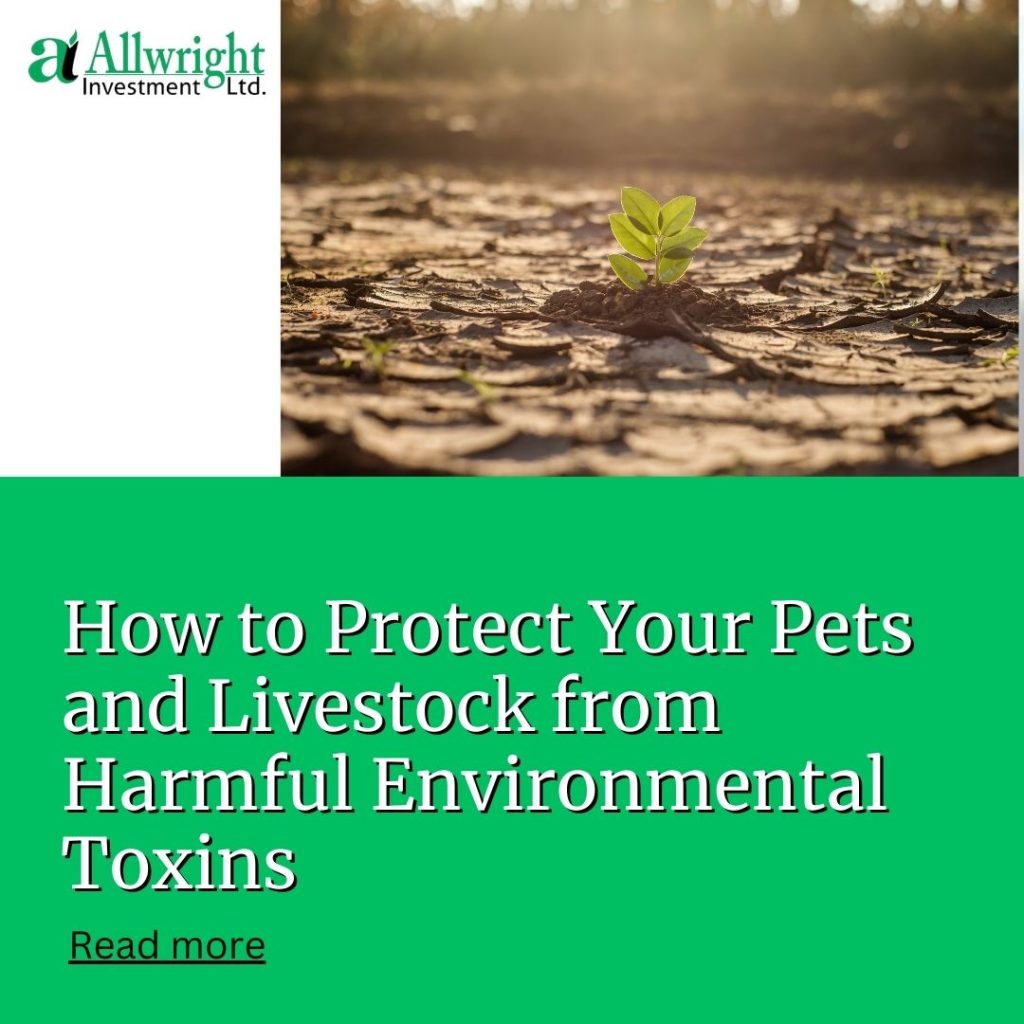
Environmental toxins pose a significant risk to the health of both pets and livestock. From pesticides to heavy metals, these harmful substances can contaminate the air, water, and soil, leading to serious health complications. Protecting your animals from these dangers is crucial for their well-being and longevity. Now, let’s take a look at the common environmental toxins, their effects, and practical steps you can take to safeguard your pets and livestock.
1. Understanding Common Environmental Toxins
Harmful toxins in the environment can come from various sources, and understanding them is the first step toward prevention. Common toxins include:
- Pesticides and Herbicides: These chemicals are often used on farms to control pests and weeds but can be toxic when ingested by animals. They can cause nausea, vomiting, seizures, and in severe cases, death.
- Heavy Metals (Lead, Mercury, Arsenic): Contaminated water and soil can expose animals to heavy metals. Symptoms include gastrointestinal issues, neurological problems, and weakened immune systems.
- Mold and Mycotoxins: Found in contaminated feed, mycotoxins can lead to poor growth, decreased milk production in livestock, and even organ failure.
- Household Chemicals: Cleaners, antifreeze, and insecticides can be harmful to pets when inhaled, licked, or consumed.
2. Signs of Toxin Exposure in Pets and Livestock
Early detection of toxin exposure is essential for effective treatment. Some common signs that your pets or livestock might be suffering from toxin exposure include:
- Lethargy and weakness: A sudden drop in energy could indicate exposure to a toxin.
- Difficulty breathing: Toxins like pesticides can irritate the lungs, leading to labored breathing.
- Vomiting and diarrhea: These are common symptoms of ingestion of toxic substances.
- Seizures and tremors: Neurological symptoms may occur with exposure to heavy metals or chemicals.
- Sudden behavioral changes: If your pet or livestock is unusually anxious, aggressive, or disoriented, it could be a sign of toxin ingestion.
3. Practical Steps to Protect Your Pets and Livestock
Protecting your animals from harmful environmental toxins requires a proactive approach. Here are practical steps to reduce their exposure:
a) Limit Access to Treated Areas
Keep pets and livestock away from areas treated with pesticides or herbicides. If you have to use these chemicals, follow recommended guidelines, and keep animals out of the treated areas for a safe period.
b) Provide Clean, Filtered Water
Ensure that your animals have access to clean and toxin-free water. Install water filters if necessary to remove contaminants such as heavy metals and harmful chemicals. Regularly clean water troughs and bowls to prevent bacteria buildup.
c) Monitor Feed and Bedding
Always store animal feed in dry, cool areas to prevent mold growth. Choose high-quality feed from trusted suppliers and avoid feeding livestock spoiled or moldy feed. Also, ensure that bedding is clean and free from chemicals or toxins.
d) Keep Chemicals and Hazardous Substances Away
Store household and farm chemicals in locked cabinets or areas inaccessible to animals. Avoid using toxic cleaning agents near your pets’ living spaces or where livestock graze.
e) Regular Veterinary Checkups
Routine veterinary visits can help identify early signs of toxin exposure or any other health issues. For farm animals, veterinary services can include tests for toxins that could affect livestock health and productivity.
By taking preventive steps and ensuring that your pets and livestock are not exposed to harmful environmental toxins, you are investing in their long-term health. At Allwright Investment Ltd, our range of veterinary services, medications, and farm support ensures that your animals receive the best care possible. Don’t hesitate to reach out to our experts for personalized advice and solutions to keep your animals safe and healthy.
Invest in Allwright Investment Limited today!

Leave a comment
You must be logged in to post a comment.